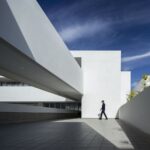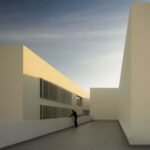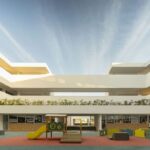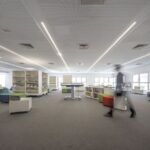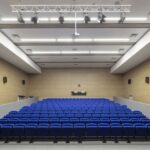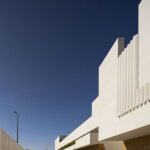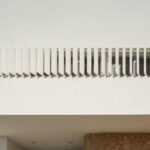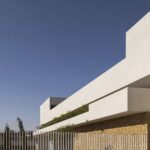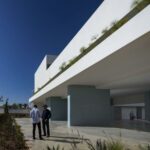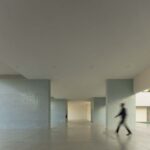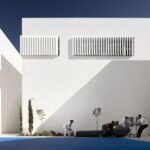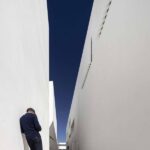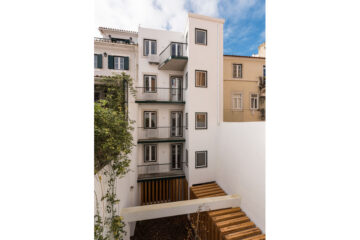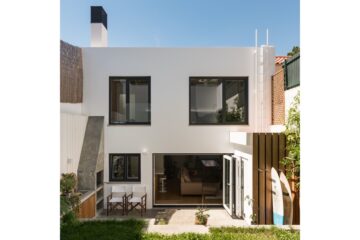Jacques Chirac School: Blending Tradition with Modernity

In the heart of Rabat, Morocco, the Jacques Chirac School stands as a testament to the city’s rich cultural and architectural legacy. Designed by Saad El Kabbaj, Driss Kettani, and Mohamed Amine Siana, the school pays homage to Rabat’s heritage while embracing contemporary educational needs.
Architectural Harmony
Divided into two main sections—the kindergarten and elementary school, and the secondary school—the school seamlessly integrates support facilities such as administrative offices, a library, sports amenities, and an auditorium. Careful consideration of the plot’s layout ensures efficient flow management and optimal use of space, with the kindergarten and elementary schools situated on the southwest side and the secondary school on the northeast side, maximizing outdoor recreational areas.
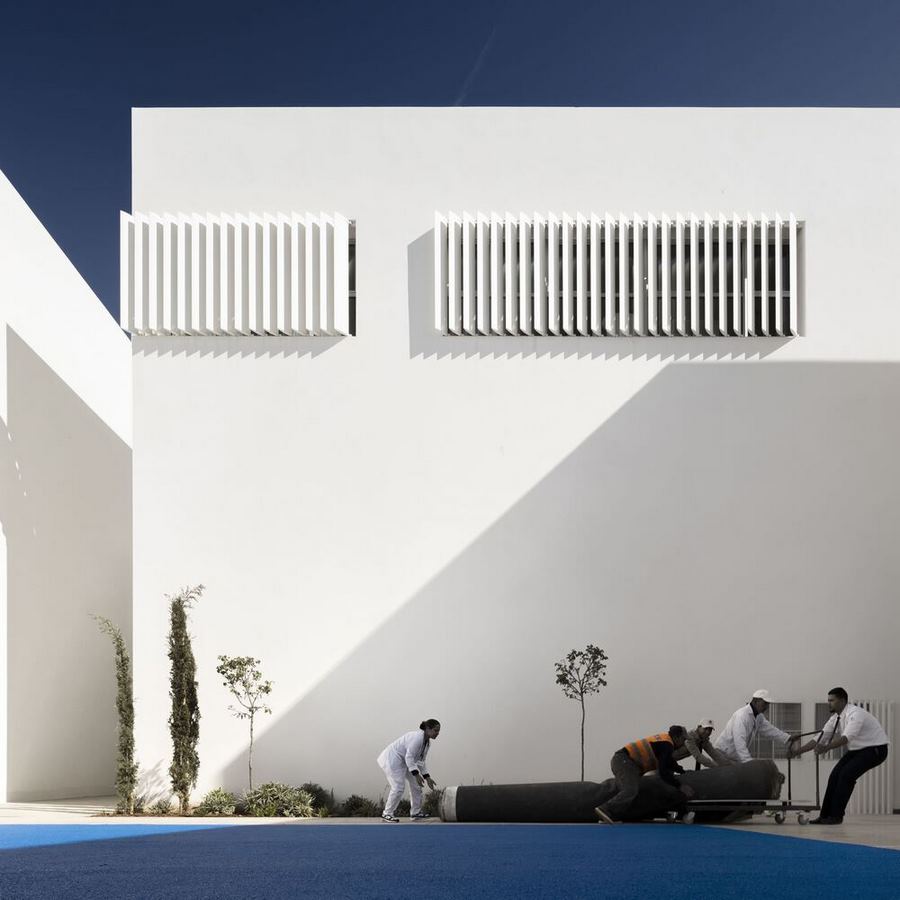
Spatial Composition
The school’s architectural composition emphasizes panoramic views and framed perspectives, creating a dynamic yet serene environment conducive to learning. Landscaped areas surrounding the main volumes shield indoor spaces from harsh sunlight and urban noise, enhancing the overall learning experience.
Design Aesthetics
Characterized by clean lines and minimalist aesthetics, the architecture of the Jacques Chirac School harmonizes with Rabat’s architectural identity. Horizontal and robust forms dominate the design, complemented by stark white volumes accentuated by vertical sunshades for both visual interest and acoustic comfort. Traditional Moroccan tiles, known as “zellige,” add a playful touch, infusing the spaces with vibrant energy.
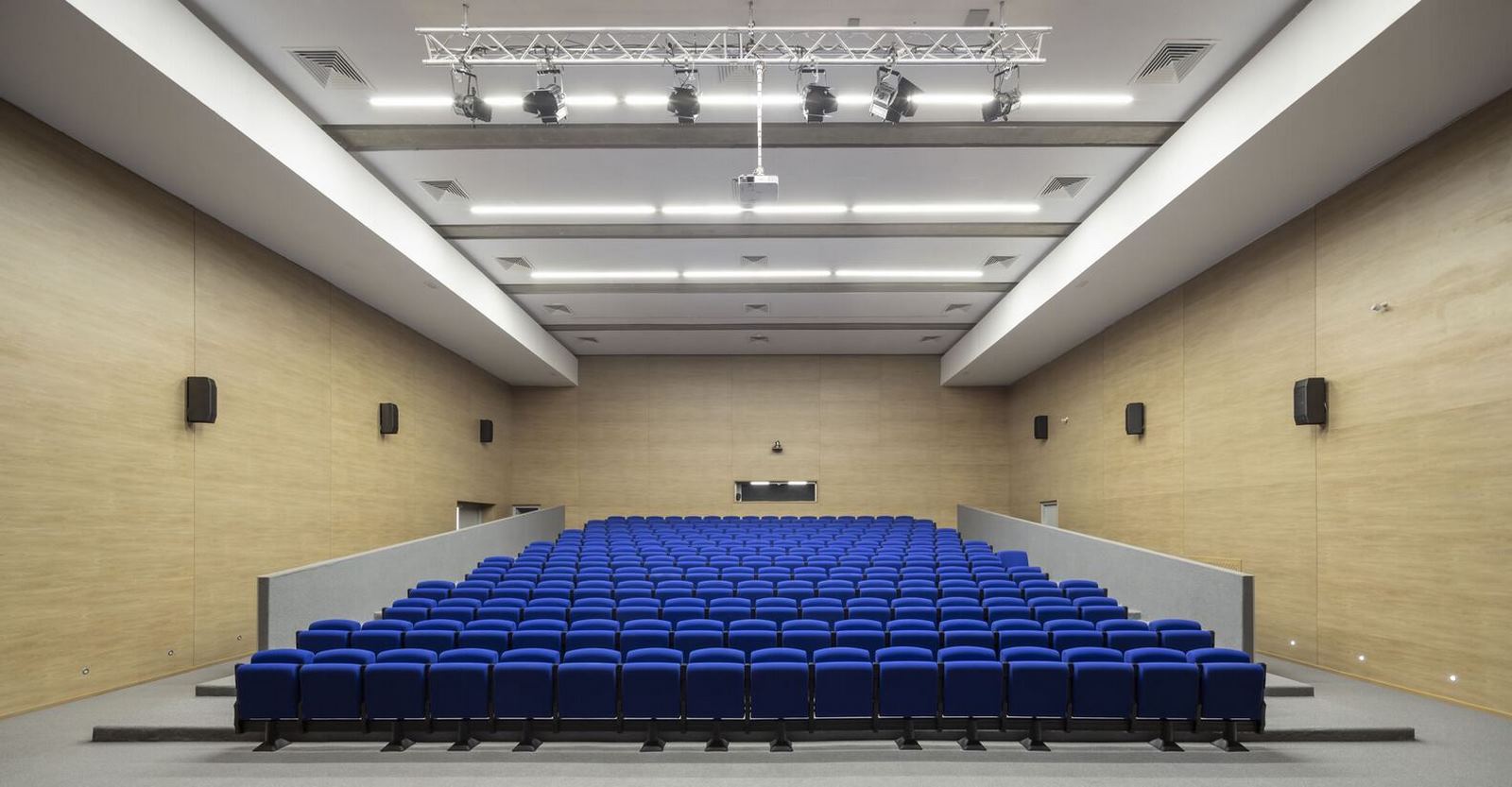
Sustainable Solutions
To address Rabat’s climate, the school incorporates passive design strategies, including outdoor covered corridors that optimize natural ventilation and daylighting. This thoughtful approach to sustainability ensures a comfortable and eco-friendly learning environment for students and faculty alike.
In essence, the Jacques Chirac School represents a fusion of tradition and innovation, where timeless architectural elements meet modern educational practices, shaping the future of Rabat’s educational landscape.

